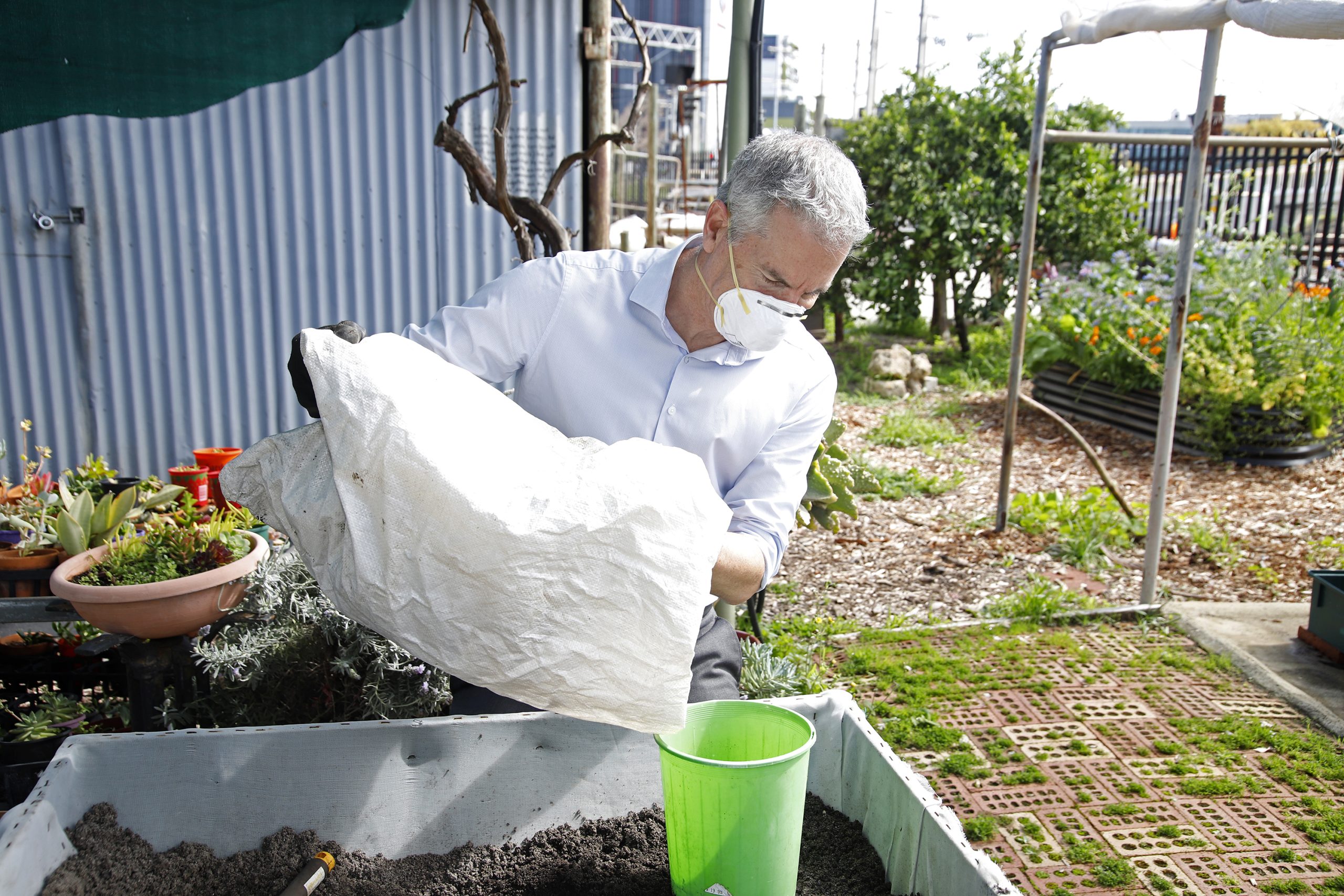No products in the cart.
Spring Legionnaires Disease Prevention
There’s the promise of warmer days in the air and gardeners will be super keen to get back out into the garden and spruce things up before the heat sets in. Bags of potting mix, mulch, compost, and soil conditioners will be lugged in and out of cars heralding spring fever in the garden.
The recent outbreak of Legionnaires disease in Victoria is a grim reminder that gardeners need to avoid a potentially deadly bacterial infection when handling bagged and bulk soil and mulch products.
Cases of Legionnaires’ disease – a severe form of pneumonia contracted by breathing in dust from soil products contaminated with legionella bacteria – often increase at the beginning of spring as people start their seasonal planting.
Legionella longbeachae bacteria are commonly found in gardening products, including bagged potting mix, mulch, and compost. Another strain of the bacteria – Legionella pneumophila – contaminates water in air conditioning cooling towers, whirlpool spas, fountains, misting systems and shower heads.
WA Health’s Acting Executive Director Environmental Health Peter Gray said there had been 187 notifications of Legionnaires’ disease linked to garden soils and/or potting mix since the beginning of 2020. “Of these, 112 cases required hospitalisation,” he said.
The risk and severity of infection increases for older people, smokers, or those with weakened immune systems, and up to 10 per cent of cases can be fatal.
A few simple measures will help protect gardeners from the risk of infection.
- Always wear a disposable face mask before opening up bags or shovelling bulk soil products from a trailer
- Wear gloves and open the bag with scissors or secateurs (not your teeth – you’d be surprised)
- Keep the soil damp before using
- Wash your hands with soap and water before removing your mask.
- Store your potting mix in a cool, dry place, out of the sun.
Sufferers of Legionnaires’ disease experience an illness like a severe ‘flu’ infection that can develop up to 10 days after exposure to the bacteria.
Symptoms can include fever, chills, aching muscles and joints, a dry cough, headache (often severe), tiredness, loss of appetite and shortness of breath.
Early diagnoses and treatment with antibiotics will reduce the disease and shorten recovery time. As with all health issues protection and prevention maximises your time in the garden in peek condition ready to tackle all the spring chores.
Tip
If bagged soil products look dry when opened, it should be wet down before using. Always have your facemask on before opening and when watering.
